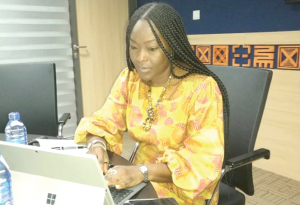 Metropolitan, Municipal and District Assemblies (MMDAs) in Ghana are operating under mysterious economic circumstances, following revelation that District Assemblies Common Fund (DACF) meant for the second quarter of 2014 was released this month.
Metropolitan, Municipal and District Assemblies (MMDAs) in Ghana are operating under mysterious economic circumstances, following revelation that District Assemblies Common Fund (DACF) meant for the second quarter of 2014 was released this month.
The release of the 2014 second quarter funds totaled an amount of GH¢79,677,453.14 was delayed due to the government inability to mobilise enough revenue for the development purpose of about 216 assemblies across the country.
In an advertisement published on Monday, January 12, 2015 edition of the Ghanaian Times, titled “Release of funds by the Administrator, District Assemblies Common Fund (DACF) to Metropolitan, Municipal, and District Assemblies (MMDAs) for the quarter ended 30th June, 2014 in accordance with DACF Act 455, 1993”, it announced the release of the funds for the assemblies.
It stated: “The Administrator of District Assemblies Common Fund (DACF) wishes to inform all Metropolitan, Municipal, and District Assemblies and the General Public of the release of their share of the District Assemblies Common Fund (DACF) for the period 1st April, 2014 to 30th June, 2014 (2nd quarter)”.
Many Ghanaians wonder how these assemblies operated from the period of 1st April to 30th June, 2014 (second quarter).
The DACF, which is a pool of resources created under section 252 of the 1992 Constitution of Ghana, has therefore been misapplied by the government and managers of the fund. The fund is a minimum of 5% of the national revenue set aside to be shared among all MMDAs in Ghana, with a formula approved by Parliament.
The DACF can, therefore, be said to be a Development Fund which enables the use of the nation’s wealth throughout Ghana to the benefit of all citizens. But the fund’s operation is being hampered by financial crunch.
This invariably means that development projects which were penciled to be undertaken during the second quarter could not come to fruition due to the delay.
It is therefore expected that funds for the first, second, and third quarters of this year will face similar delays. This does not augur well for the socio-economic development of the country, according to economists and development experts.
A PhD student of Development Economics at the University of Ghana, Emmanuel Nii Abbey described it as “unfortunate” but questioned how the assemblies survive.
He, therefore, appealed to the authorities’ in-charge of the disbursement of funds as a matter of urgency to speed up the release of funds to the MMDAs to execute their projects.
Nii Abbey also did not hesitate to urge the government to be proactive in providing funds for the assemblies and other statutory bodies to enable them perform satisfactorily.
In addition, the young economist told African Eye News.com that the various MMDAs should strengthen their internal generating fund efforts to wean off from the central government.
More Trouble For Projects
This is taking place at the time when the government’s preliminary data for the first nine months of the year 2014 indicated that, both revenue and expenditure were below their respective targets for the period.
However, the shortfall in revenue was lower than the shortfall in expenditure, and this resulted in a fiscal deficit of 5.9 percent of GDP (cash basis), against a target of 6.4 percent. This compares to a deficit equivalent to 8.1 percent of GDP for the same period in 2013, according the 2015 budget.
It noted that total revenue and grants for the first three quarters of 2014 amounted to GH¢17,670.2 million, equivalent to 15.4 percent of GDP, against a target of GH¢18,414.1 million, equivalent to 16.0 percent of GDP.
The shortfall in total revenue and grants, the Finance Minister, Seth Terkper said was partly as a result of slow disbursement of project grants from our development partners and, mainly due to lower than anticipated domestic revenue collections.
In nominal terms, the outturn was 26.4 percent higher than the outturn for the same period in 2013. For the year as a whole total revenue and grants is projected at GH¢24,739.2 million, 5.7 percent lower than the budget target for the year, he noted.
Domestic revenue, made up of tax and non-tax revenue for the period under review, amounted to GH¢16,927.6 million, against the budget target of GH¢17,634.5 million.
The outturn was 4.0 percent lower than the budget target and 25.8 percent higher than the outturn for the same period in 2013.
The 2015 Budget Statement and Economy Policy of the government stated: “The shortfall in domestic revenue was mainly due to weak tax revenue performance in almost all the tax types except taxes from oil and mineral royalties. Based on the performance, domestic revenue for the year as a whole is projected at GH¢23,937.0 million, 3.6 percent lower than the budget estimate of GH¢24,839.4 million.
Non-oil tax revenue, excluding exemptions for the period, amounted to GH¢11,466.4 million, 9.1 percent lower than the budget target of GH¢12,618.8 million. Including oil and exemptions, tax revenue amounted to GH¢13,388.8 million, 3.7 percent lower than the target of GH¢13,902.9 million”.
The shortfall in tax revenue was partly due to the slowdown in economic activity resulting from the energy challenges as well as lower import volumes arising from the depreciation of the Cedi. On a year-on-year basis the outturn for tax revenue was 32.2 percent higher than the outturn for the same period is 2013.
For the year as a whole, tax revenue is projected at GH¢19,399.9 million, 2.0 percent lower than the budget estimate.
African Eye News.com





